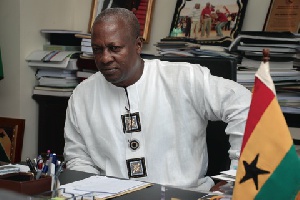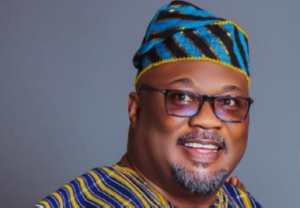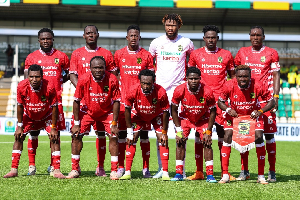...as Mahama rides out challenge to mandate
The Supreme Court yesterday confirmed President John Dramani Mahama’s 2012 election victory, clearing the way for the President to devote unhindered focus on pressing economic problems, including a large budget deficit, infrastructure weaknesses and youth unemployment.
The court, by a majority decision, dismissed all six sets of claims -- which included inflated vote counts and violations of electoral laws -- by losing candidate Nana Akufo-Addo, his running mate Dr. Mahamudu Bawumia, and New Patriotic Party (NPP) chairman Jake Obetsebi-Lamptey, affirming the results declared by the Electoral Commission on December 10.
Mr. Mahama, according to the EC, won the poll with 50.7 percent of the vote, while his closest rival Mr. Akufo-Addo garnered 47.7 percent. The difference in tallies was around 326,000 ballots from almost 11 million valid votes cast.
The landmark judgement ended the eight-month long legal challenge to the mandate of the President, who won the December poll on a promise to consolidate Ghana’s middle-income standing.
With the court case now behind him, President Mahama is expected to carry on with policies which aim to cut the large budget deficit of 11.8 percent of GDP in 2012, rein-in inflation and improve living standards.
“I think investors will be excited about this,” lead analyst at Databank Sampson Akligoh said after the judgement. “Aside from the macro imbalances, opportunities exist in Ghana which investors will want to take advantage of. I expect us to have strong foreign direct investment inflows, especially if government commits to strong fiscal consolidation.”
He said the President’s immediate priorities will be to continue with key fiscal policy initiatives in the budget and lay out a more coherent national development policy. Ghana’s huge 2012 budget gap in 2012 fuelled anxiety among investors and analysts, leading ratings agency Fitch to cut the outlook on the country’s B+ sovereign debt rating from stable to negative in February.
“It’s important that fiscal consolidation takes note of broader economic development priorities, focusing on areas such as ICT, agriculture and industry,” said Mr. Akligoh.
President Mahama has promised to grow the economy by at least 8% annually during his term, and increase the per capita income -- currently in the region of US$1,700, to US$2,300 by 2016. He has also pledged to use oil revenues to expand industrialisation and boost jobs.
Ghana’s economy grew by 7.9 percent in 2012 and is forecast to expand by 8 percent this year. Oil revenues rose 66 percent year-on-year to US$541.8million in the first half of 2013, driven by an increase in production to 110,000 barrels a day.
Despite its robust growth, the economy’s potential is constrained by the rise in macroeconomic risks due to the depletion of fiscal and external buffers during last year’s elections. The cedi, seen by many as a key gauge of the macroeconomy’s health, lost 17.5 percent to the dollar in 2012 as investors feared the government was going to repeat a previous history of election-driven fiscal slippage.
In July, government launched the country’s second Eurobond on the international debt market, selling US$1billion of 10-year debt to investors who demanded a premium with a yield of 8 percent, well above issues by peer countries in the past 12 months.
The expenditure of the bond will comprise US$387million for capital projects, 73 percent of which will be executed in the 2013 fiscal budget, and US$363million for retiring maturing domestic debts mostly on the short-term end of the market.
Finance Minister Seth Terkper has said government will be returning to the international market to sell more debt if the macroeconomy improves substantially. He is expecting a budget deficit of 9 percent of GDP in 2013 and 6 percent in 2015.
Business News of Friday, 30 August 2013
Source: B&FT













